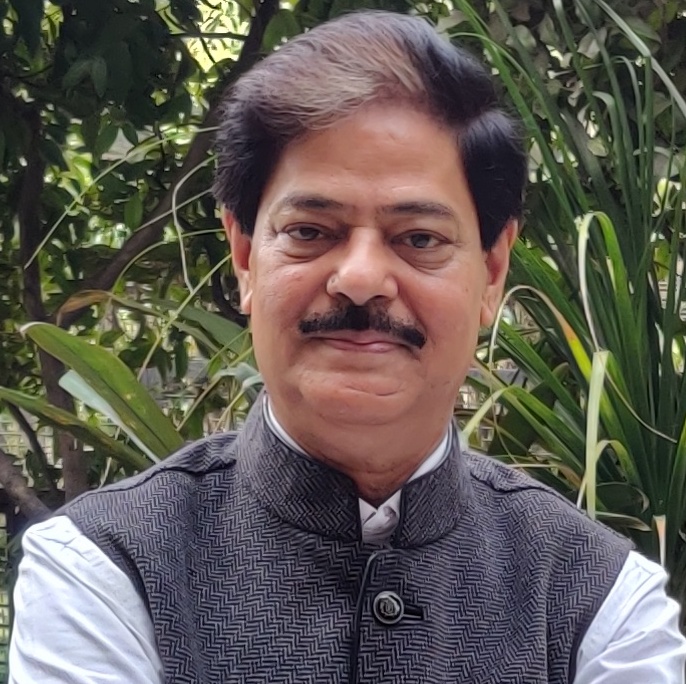The rise in wealth generation is accompanied by a fall in ethical standards of government officials
The growth story of our country has remained a mixed baggage. There has been tremendous advancement in many sectors but there are also areas of huge concern. It was generally believed that liberalisation and globalisation would unshackle the economy and accelerate growth. As the national income would rise, all sections of society would get a share in the rising wealth, through a trickledown effect, and become part of an inclusive growth through a redistributive process. After 20 years, that hope, as is apparently clear now, has not been realised. The number of the poor living in squalor and sub-human conditions has actually risen while certain sections of society have indeed prospered through the new deal. It is against this background that we increasingly talk of transparency, accountability and good governance because the machinery responsible for steering the developmental processes is mostly the government.
Despite certain hitches, the country today is at a crucial stage of economic development, with aspirations and forecast to be the third largest economy. That prospect is not too off the mark as we have been doing better than many countries over the last few years. However, it is not only the GDP that is important for a country’s all-round development, but also really the increase in per capita income that brings more money in the hands of a citizen. If wealth generation goes along with more equitable distribution, it provides social and consequential political and economic stability. This total oversight is also the responsibility of the government machinery in a big way.
It is in this context that during the last two-three years especially, there were frequent talks of governance deficit. Perhaps, the real reason for this deficit is the fall in ethical standards of all concerned, public or private, that affects governance at all levels and adversely impacts the distribution of economic gains. Many years ago, a prime minister lamented that only 15 percent of the government grant reaches the poor.
Regrettably, in public perception, that assumption is considered true even today, as funds are siphoned off by greedy officials. Despite several healthy democratic institutions, corruption is rampant and we have not been able to reverse this tide; if anything, it has continued to spread and flourish. Not surprisingly, while we count quite low down on the Human Development Index, our ranking as per the Transparency International, in terms of corruption in public life, is equally dismal.
Since the execution and implementation of public services and government schemes are the preserve of government officials, the responsibility for inefficiency, pilferage, non-performance and incongruity has to be borne by them in a large measure. The charge sticks because of the lack of adherence to ethical standards by public servants in their belief and practices. The charge of lethargy and rent-seeking is not unfounded as several shameful instances keep tumbling out of the cupboards every day from different corners of the country.
Why the government servants are found culpable? Are they underpaid? Low salary was a fact until a decade ago, but not anymore. The salary structure in government has improved substantially during the last few years and it is not too badly off compared to the private sector. Any government official, who explains away bribery through the inability to meet the two ends, as if that facetious pretext has any justification, is misguiding. In fact, many of these employees have their spouses also working; the average household income of the employees is actually very good today. If they still find it difficult to live within their means and seek extra gratification, then clearly the problem lies elsewhere.
Poverty of the government servant is the most fictitious argument for their corrupt behaviour. It is related to a negative value system, attitude, smugness, coupled with hidden assurance of low risk and lack of fear about the consequences of their acts. It is well known that when it comes to fixing responsibility, the cost of illegalities is quite low in our country and that gives a wonderful opportunity to wrong-doers. The fear of getting caught and punished is abysmally low.
Mahatma Gandhi had observed that “there is enough for everybody’s need but not enough for anybody’s greed.” Unless and until greed is checked, there cannot be a long-term solution for our ills and that could only come through absorption and adoption of ethical standards in national life. Building up the moral fabric neglected hereto, not in any abstract form but through rigorous training from school level, may help in turning the tide over a generation. This, along with vigorous institutional enforcement on government officials first, and on the private sector thereafter, should help. The cost to the wrong-doer of his misdemeanour must rise!
(The article appeared in March 1-15, 2015, issue)
